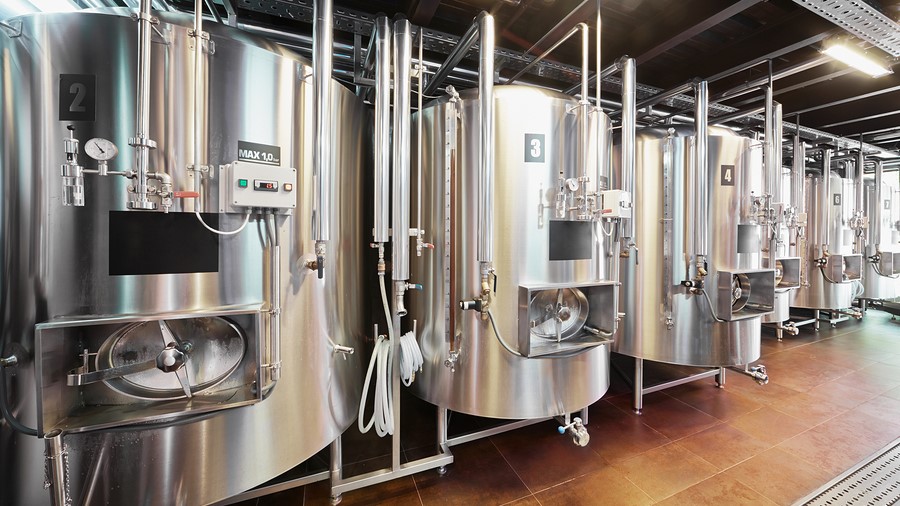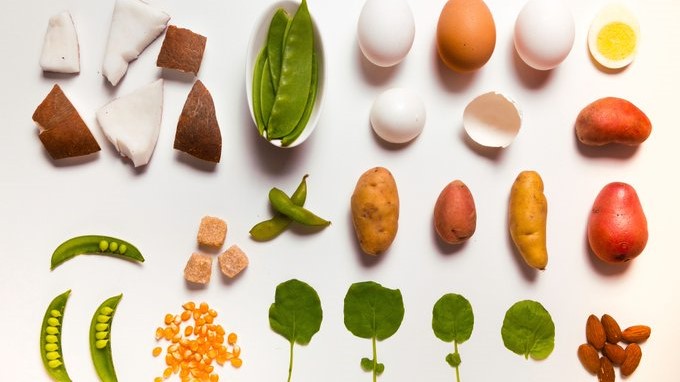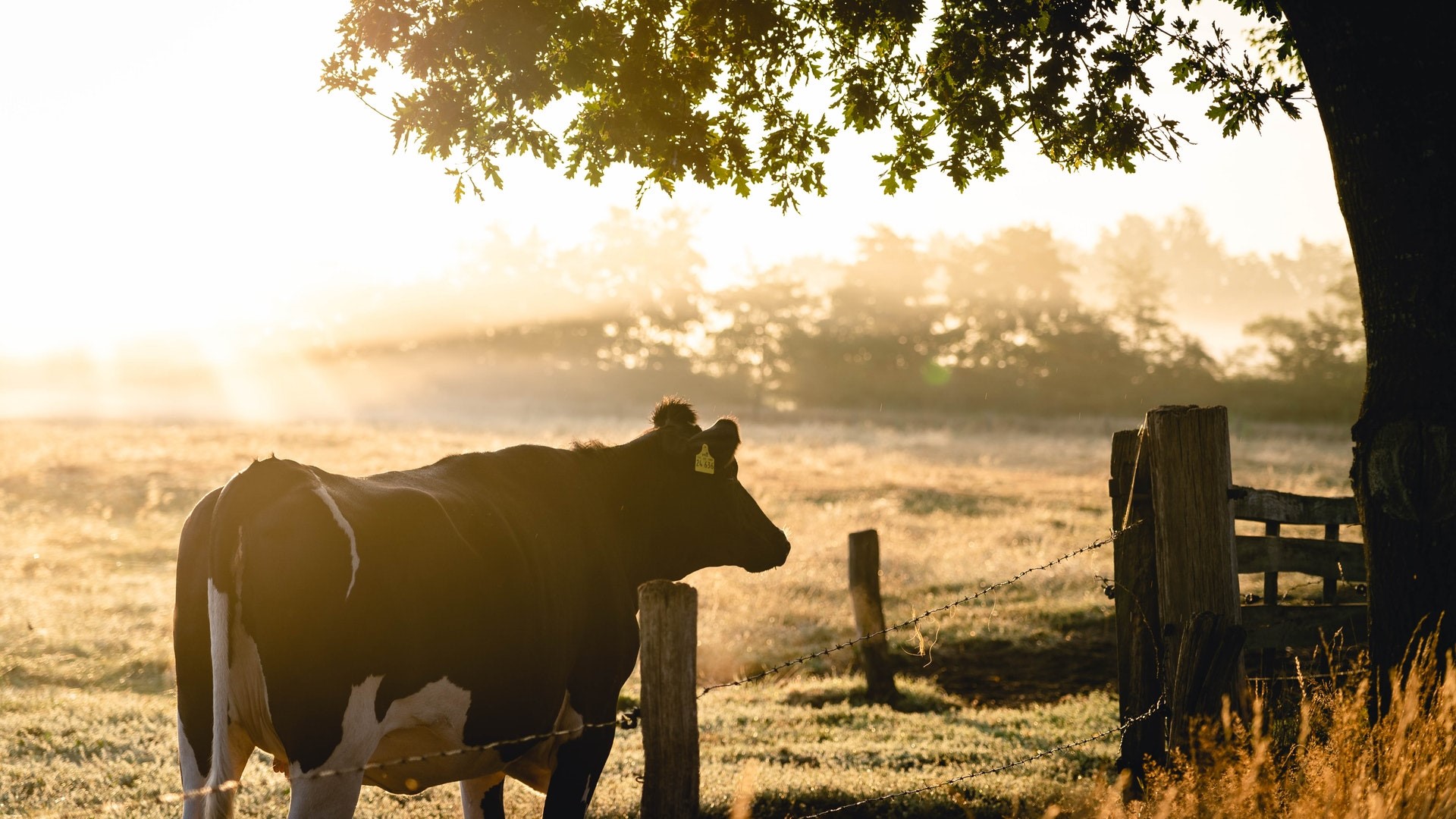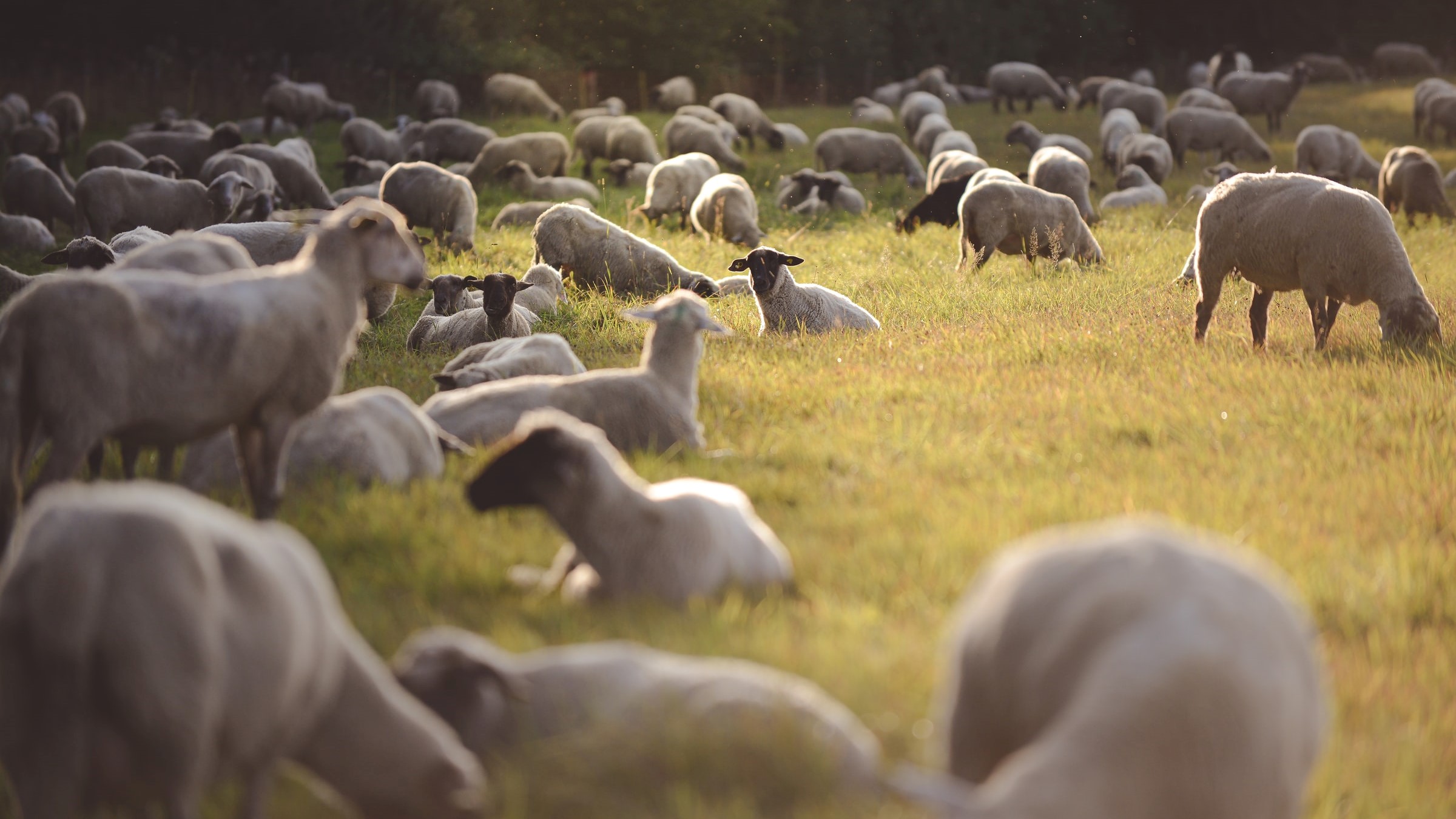December 2021: The Month in Review

This December 2021 marked a strong end to an incredible year for the cellular agriculture field. Compared to conventional animal agriculture, cellular agriculture offers an alternative and more sustainable way to produce animal products directly from cell cultures. As a result, cellular agriculture can make a wide range of animal-derived products from meat to dairy.
With milestones throughout the year, 2021 will be remembered as an important building year for the field. From a new regulatory approval to technical scaling breakthroughs, the cellular agriculture field grew closer to becoming part of our future food system. This December also featured the largest cell-based meat funding round to date.
Investments
Future Meat Technologies
Future Meat Technologies announced the company raised an enormous $347 million in Series B funding to scale the production of its cell-based meat. Based in Israel, Future Meat Technologies uses its proprietary platform to produce a range of cell-based meats, including chicken and lamb.
 Future Meat's cell-based chicken meat
Future Meat's cell-based chicken meat
The largest funding round to date for a cell-based meat company, Future Meat’s Series B round was co-led by ADM Ventures and an unnamed global tech investor. The funding round also featured an investment from meat corporate Tyson Foods.
The funding round brings Future Meat’s total funding to just under $390 million, the most disclosed funding to date by a cell-based meat company. Future Meat previously raised $21.75 million in February 2021, and, in October 2019, the company raised $14 million in its Series A funding round.
After launching its pilot plant in June 2021, Future Meat Technologies plans to use the funding round to build a larger cell-based production facility in the United States. According to the company, Future Meat aims to produce a 13,000 gallon (approx. 59,000 liters) production facility and is exploring both Boston and Minneapolis for the facility location. Pending regulatory approval, Future Meat aims to launch its first product in the US in 2022.
Along with the funding announcement, Future Meat shared that the company further reduced the cost of its cultured chicken breast to $1.70 per 110-gram chicken breast and almost a pound of its cultured chicken for $7.70 per pound. Earlier in May 2021, Future Meat shared the cost of its cultured chicken breast was $4 per 110 grams and, in February 2021, the price of a quarter-pound of its chicken was $7.50.
The Every Company
The Every Company raised a massive $175 million in Series C funding to scale the production of its animal-free egg proteins.
Formerly known as Clara Foods, The Every Company is a startup that uses cellular agriculture to produce animal-free proteins, specifically egg proteins. By designing yeast to make the same proteins found in an egg from a chicken, The Every Company aims to produce the same egg white. Without requiring the chicken.
 The Every Company's ClearEgg protein product is highly soluble and nearly tasteless
The Every Company's ClearEgg protein product is highly soluble and nearly tasteless
The Every Company’s funding round was co-led by Rage Capital and investment firm McWin. The funding round also featured investments from Temasek, Grosvenor’s Wheatsheaf Group, TO Ventures, and Prosus Ventures.
According to the announcement, the new funding round brings The Every Company’s total funding to $233 million. After Perfect Day, The Every Company is the second cellular agriculture food company to raise a Series C funding round. The Every Company previously raised its Series B funding round in April 2019.
The funding round marks a solid end to an incredible year for The Every Company. In March 2021, the company launched its first commercial product: an animal-free pepsin protein. Traditionally sourced from animals like pigs, pepsin is a digestive enzyme commonly used as a processing aid for various products, including food, beverages, and dietary supplements.
In October, along with rebranding from Clara Foods to The Every Company, the company announced the launch of its next product: ClearEgg. According to the company, Clear Egg is a highly soluble and nearly tasteless protein that can be used to increase the protein content of various foods and beverages. The Every Company partnered with plant-based snack company Pressed to launch ClearEgg in a new Pressed juice smoothie in November.
Moving forward, The Every Company plans to use the new funding round to scale its production platform and commercialize its cell-cultured proteins into a range of new food applications. In April 2021, The Every Company partnered with global beer brewing company AB InBev through its venture and innovation arm ZX Ventures to scale production of its animal-free egg proteins using AB InBev’s expertise in fermentation at scale.
Ark Biotech
For cell-based meat production to reach a commercial scale, the field will need to develop large-scale bioreactors that do not yet exist. To help address the challenge, new startup Ark Biotech recently raised $2.5 million to develop bioreactors specifically for cell-based meat production.

The company is currently putting together a team to develop the infrastructure and software for the systems. Ark Biotech’s funding round included investments from Primary Venture Partners, who previously invested in cell-cultured human breast milk startup Helaina, and HCVC.
Singapore Grants Regulatory Approval for Good Meat’s Next Cultured Chicken Product
One year after receiving the historic first regulatory approval for cell-cultured chicken, Good Meat announced the Eat Just subsidiary received regulatory approval in Singapore to sell new types of its cell-cultured chicken products in Singapore.
 In Decemember 2020, Eat Just received regulatory approval for its cell-cultured chicken
In Decemember 2020, Eat Just received regulatory approval for its cell-cultured chicken
One of the new products, a cell-cultured chicken breast, was presented at the JW Marriott Singapore South Beach in mid-December to a group of young people. Previously, Good Meat received regulatory approval for only its cell-cultured chicken bites. Good Meat also shared plans to launch its cell-cultured chicken at some of Singapore’s famed hawker centers in 2022, one of which will be Loo’s Hainanese Curry Rice.
Along with the new product approval, Good Meat shared the company is working to increase the capacity of its production facility to enable large-scale production in Singapore. Good Meat aims to have all the equipment installed and operational in two years.
Good Meat also announced chef Jose Andres will join the company’s Board of Directors. A renowned chef that regulates more than 30 restaurants in the US, Andres pledged to serve cell-cultured chicken at one of his restaurants in the US following regulatory approval in the country.
Motif Foodworks Receives Regulatory Approval for Animal-Free Protein
Motif FoodWorks announced its new animal-free protein, myoglobin, has received regulatory approval and is now commercially available for large-scale distribution. Branding the product as HEMAMI, Motif’s myoglobin product aims to mimic the flavors of cooked ground meat in fresh and frozen plant-based burgers, patties, and sausages.

In addition to the flavor component, Motif FoodWorks also had to submit a color addition petition due to the protein’s red color. Motif FoodWorks first submitted a generally recognized as safe (GRAS) notification for its new myoglobin protein in September 2021.
According to the company, Motif’s animal-free protein can be labeled ‘myoglobin’ or ‘natural’ flavor on the packaging. The company also stated that the protein would trigger a bioengineered food label due to native proteins found in the host microorganism found in the myoglobin preparation.
CellMeat Showcases First Cell-Cultured Dokdo Shrimp Prototype
South Korean cell-based meat startup CellMeat showcased the first cell-cultured Dokdo shrimp prototype. After sharing that the company removed fetal bovine serum (FBS) from its cell culture media formulation earlier in December, the cell-cultured Dokdo shrimp prototype was created using the animal-free media formulation. According to CellMeat, its serum-free cell culture media can grow cells faster than currently available serum-free media or formulations containing FBS.
 CellMeat's cell-cultured Dokdo shrimp prototype
CellMeat's cell-cultured Dokdo shrimp prototype
Following the successful prototype, CellMeat aims to develop other cell-cultured seafood prototypes, including lobster and king crab meat. The company will also scale its production platform for its cell-cultured shrimp to be more cost-effective. In February 2021, CellMeat raised approximately $4.5 million in pre-Series A funding to produce its cell-based meat and seafood.
Upside Foods Develop Animal-Free Cell Culture Media Formulation
Cell-based meat company Upside Foods announced the development of a cell culture media formulation that is ‘Animal Component Free’ (ACF). Calling its cell culture media formulation the ‘cell feed,’ developing an inexpensive and animal-free cell culture media is a key cost and scaling hurdle for the field.
 Upside Foods' cell-based chicken hotdog
Upside Foods' cell-based chicken hotdog
To demonstrate the versatility of its ACF media, Upside Foods used it to produce prototypes of two popular food items: cell-cultured chicken nuggets and hot dogs (chicken). While initially showing that the ACF cell feed works well to produce chicken products, Upside Foods is now integrating the cell culture media across its broader product portfolio. In November, Upside Foods announced the opening of their new cell-based meat facility in California.
At the same time Upside Foods announced its ACF media formula, reports emerged about the context and timing through which Upside Foods co-founder Nicholas Genovese left the company. According to the reports, Genovese and his team “achieved a significant scientific breakthrough: a novel cell-culture device that could produce lab-grown animal cells better than anything else Upside [Foods] had achieved before” before his departure. The company also filed a lawsuit over intellectual property over the technology platform with a former employee of Genovese’s team.
Aleph Farms Partners with Wacker for Growth Media Proteins
Cell-based meat startup Aleph Farms announced a partnership with German company Wacker to provide the startup with food-grade growth medium proteins for its cell culture media formulation. Having worked with Wacker to co-create streamlined processes to manufacture the essential growth medium proteins, Aleph Farms shared its partnership with Wacker is non-exclusive. The non-exclusivity of the partnership means that other cell-based meat startups can license the growth medium proteins to produce cell-based meat.
 Aleph Farms' cell-based steak
Aleph Farms' cell-based steak
Developing an inexpensive and animal-free cell culture media is a key cost and scaling hurdle for the field, and it is promising to see Aleph Farms make its partnership with Wacker non-exclusive to help scale up the broader cell-based meat ecosystem. In July, Aleph Farms raised $105 million in Series B funding to scale its cell-based steak technology platform.
Wildtype Partners to Bring Cell-Cultured Sushi to Market
Cell-cultured seafood startup Wildtype announced that the startup signed distribution agreements with grocery store sushi bar operator Snowfox and the restaurant chain Pokeworks.
 Wildtype's cell-cultured salmon sushi
Wildtype's cell-cultured salmon sushi
Once the company scales production, the partnerships pave the way for consumers to taste Wildtype’s cell-cultured salmon. When first coming to market, Wildtype shared its cell-cultured salmon will be first available in fine dining restaurants at a smaller scale. However, considering there is no regulatory approval yet in the US, it is unclear when the items will be available. In June 2021, Wildtype set up the first operational cell-based seafood pilot plant.
USDA Receives Labeling Comments About Cell-Cultured Meat From ANPR
Beyond the food safety aspects of regulation, labeling has been one of the significant points of contention for cellular agriculture meat companies in the US. From livestock associations to nonprofits and cellular agriculture companies, a wide range of different stakeholders submitted comments to the US Department of Agriculture in response to its advanced notice of proposed rulemaking (ANPR).
While some groups argued that it is still too early to objectively verify some of the contentious labeling questions, such as equivalency with conventional meat, the cellular agriculture field shared various perspectives on the labeling question.

Within the cellular agriculture field, Upside Foods stated its preferred term is cultivated meat. In addition, following its market research, seafood company BlueNalu said its preferred term is cell-cultured seafood. The regulatory coalition AMPS Innovation acknowledged that its members had different viewpoints on how cellular agriculture meat and seafood products should be labeled.
US-based nonprofits, the Good Food Institute (GFI) and New Harvest, also highlighted key considerations into future labeling requirements with their comments. While GFI advocated that specific negative labeling terms should not be used to describe cell-cultured meat, New Harvest emphasized that there should be a required qualifier term for cell-cultured meat products to help consumers distinguish and recognize them.
Regulatory coalition AMPS Innovation first recommended conducting an ANPR in October 2020 to get more information and supporting data before deciding the labeling rules for cell-cultured meat.
Cellular Agriculture Canada publishes Follow-On Regulatory Report
Following its first regulatory white paper in September 2020, Cellular Agriculture Canada recently published a follow-on report featuring insights from Canadian regulators and experts on how cell-cultured meat would be regulated under the current novel foods pathway in the country.

Government regulation has been a major question moving forward for the field, and it is promising to see Canadian regulators proactively explore how regulation would look like in the country. Cellular Agriculture Canada previously published a white paper outlining initial steps of how a cell-cultured meat food product could be regulated under the current novel foods pathway in the country.
Disclosure: Ahmed is a co-founder of Cellular Agriculture Canada and contributed to Cellular Agriculture Canada’s regulatory white paper and supplement report.
Conclusion

With two of the largest funding rounds to date and new scaling breakthroughs, December marked a strong end to the year 2021 for cellular agriculture. After 2020 ended with the first regulatory approval for Eat Just in Singapore, the field came full circle to see Eat Just receive regulatory support for its following cultured chicken product in the country.
While no other cell-based meat company received regulatory approval in 2021, many different milestones were achieved throughout the year to show how cellular agriculture continued to grow.
With new product partnerships and launches by both Perfect Day and The Every Company in November 2021, Motif FoodWork’s regulatory approval indicates that there will be more acellular agriculture food product launches in the new year.
Future Meat’s strong end to the year epitomizes how 2021 has been an incredible year for the cellular agriculture field. From a record investment round to scaling milestones, the field continued to march forward to become part of the future of food.
Future Meat’s funding round also marks another historic milestone for the field. After the field reached the $2 billion total funding milestone over the summer, the cellular agriculture investment landscape has now reached $3 billion in total funding. With just under $2 billion raised in 2021 alone, this has been a momentous year for the field.
Stay connected with CellAgri
Join our mailing list to receive the latest news and updates weekly from the cellular agriculture industry. Your information will not be shared.



